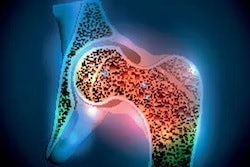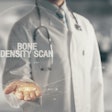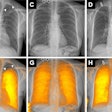
Dual-energy x-ray absorptiometry (DEXA) scans show a higher prevalence of osteoporosis and low bone mass in obese patients after bariatric surgery, according to a study published June 22 in Bone Reports.
The finding is from a group from the University of Lorraine in France that evaluated bone fragility in 675 patients with obesity before and two years after bariatric surgery.
“These results should encourage practitioners to perform bone screening before and after this surgery to diagnose osteoporosis before fracture involvement,” noted lead author Marine Fauny, MD, a rheumatologist at Nancy University Hospital.
Obesity and osteoporosis have become major global health problems due to their increasing prevalence, yet the interaction between these two diseases is complex and not fully understood, the authors explained.
For instance, in the medical literature, some studies have shown that obesity may be a protective factor for bone, while others suggest that patients with obesity have a higher risk of fracture, they noted.
To further elucidate these interactions, the researchers assessed bone fragility in obese patients before and two years after bariatric surgery, a highly effective therapy for obesity that reduces weight and improves quality of life.
Among the 675 included patients, 78 % were women, with a mean age of 49.5 years. All patients were obese and had undergone DEXA scans before and after surgery, with bone mineral density (BMD) T-scores assessed at the lumbar spine, femoral neck, and total hip.
Before bariatric surgery, the mean weight among participants was 125 kg (275 lbs) and the mean body mass index (BMI) was 45.3 kg/m2. Two years after surgery, the mean weight was 83 kg (183 lbs), and the mean BMI was 29.9 kg/m2.
According to the DEXA scans, there were significantly more patients with osteoporosis after bariatric surgery: 3.6 % versus 0.9 % (p = 0.0001). In addition, an analysis revealed that age and lower lean and fat mass before the surgery were risk factors for developing osteoporosis (BMD T-scores ≤ −2).
“There is a higher prevalence of osteoporosis and low bone mass after bariatric surgery,” the group wrote.
Ultimately, surgical techniques such as sleeve gastrectomy or gastric bypass create digestive malabsorption of calcium, vitamin D, and other nutrients associated with bone health; current management of these patients should be geared toward bone loss prevention and nutritional deficiency correction, the authors noted.
“Longitudinal follow-up may be warranted to precisely determine the kinetics of bone loss after bariatric surgery and to establish thresholds for screening or therapeutic interventions,” the group concluded.
The full study is available here.



















